
0
+
Google Reviews

0
+
4.2 (2036 Ratings)
Radical Technologies will provide complete hands-on training on Red Hat OpenShift Container Platform
Red Hat OpenShift Container Platform is a containerized application platform that allows enterprises to manage container deployments and scale their applications using Kubernetes. OpenShift Container Platform provides predefined application environments and builds upon Kubernetes to provide support for DevOps principles such as reduced time to market, infrastructure-as-code, continuous integration (CI), and continuous delivery (CD).
Exam Preparations is part of this training.


Curriculum Designed by Experts
Introduction to building and managing docker containers for deployment on a Kubernetes cluster
Introduction to Containers, Kubernetes, and Red Hat OpenShift (DO180)
As a result of attending this class, students should be able to containerize simple software applications and services; deploy them with Docker, Kubernetes, and Red Hat OpenShift; test the containerized version; and troubleshoot issues with deployment.
One of the key tenets of the DevOps movement is continuous integration and continuous deployment. Containers have become a key technology for the configuration and deployment of applications and microservices. Kubernetes is a container orchestration platform that provides foundational services in Red Hat OpenShift Container Platform.
Understand container, Docker, and Red Hat OpenShift architecture.
Create containerized services.
Manage containers and container images.
Create custom container images.
Deploy containerized applications on Red Hat OpenShift.
Deploy multi-container applications.
Course introduction
Introduce and review the course.
Get started with container technology
Describe how software can run in containers orchestrated by Red Hat OpenShift Container Platform.
Create containerized services
Provision a server using container technology.
Manage containers
Manipulate pre-built container images to create and manage containerized services.
Manage container images
Govern the life cycle of a container image from creation to deletion.
Create custom container images
Design and code a Docker file to build a custom container image.
Deploy containerized applications on Red Hat OpenShift
Deploy single container applications on Red Hat OpenShift Container Platform.
Deploy multi-container applications
Deploy applications that are containerized using multiple container images.
Troubleshoot containerized applications
Troubleshoot a containerized application deployed on Red Hat OpenShift.
Comprehensive review of Introduction to Container, Kubernetes, and Red Hat OpenShift
Demonstrate how to containerize a software application, test it with Docker, and deploy it on a Red Hat OpenShift cluster.
Create, configure, manage, and troubleshoot OpenShift clusters
Red Hat OpenShift Administration I (DO280) teaches you how to install and administer the Red Hat® OpenShift® Container Platform. This hands-on, lab-based course shows you how to install, configure, and manage OpenShift clusters and deploy sample applications to further understand how developers will use the platform.
OpenShift is a containerized application platform that allows enterprises to manage container deployments and scale their applications using Kubernetes. OpenShift provides predefined application environments and builds upon Kubernetes to provide support for DevOps principles such as reduced time to market, infrastructure-as-code, continuous integration (CI), and continuous delivery (CD).
Install an OpenShift Container Platform cluster
Configure and manage masters and nodes
Secure OpenShift
Control access to resources on OpenShift
Monitor and collect metrics on OpenShift
Deploy applications on OpenShift Platform Container using Source-to-Image (S2I)
Introduction to Red Hat OpenShift Container Platform
List the features and describe the architecture of the Openshift Container Platform.
Install OpenShift Container Platform
Install OpenShift and configure the cluster.
Explore OpenShift networking concepts
Describe and explore OpenShift networking concepts.
Execute commands
Execute commands using the command-line interface.
Manage OpenShift resources
Control access to OpenShift resources.
Allocate persistent storage
Implement persistent storage.
Manage application deployments
Manipulate resources to manage deployed applications.
Metrics subsystem
Install and configure the metrics-gathering system.
Manage and monitor
Manage and monitor OpenShift resources and software.
Covers each topics with Real Time Examples . Covers More than 250+ Real Time Scenarios which is divided into L1 ( Basic ) + L2 ( Intermediate) and L3 ( Advanced ) . Trainer from Real Time Industry .This is completely hands-on training , which covers 90% Practical And 10% Theory
We give Combo Pack of RHEL 6 with RHEL 7 , to make sure all the candidate will get at least 5+ Year experience knowledge in Redhat Linux after attending this course.Covers SA1 + SA2 + SA3 topics in Details from the very basic to advanced level .
Complete RHCSA and RHCE Exam Preparations.Appear for Redhat Global Certification Exam At any time After the course – No need to wait to get schedule from Redhat .At your convenient time , you can book and appear for exam using our Individual Exam Delivery System called KOALA
Radical Technologies is the leading IT certification institute in Bangalore, offering a wide range of globally recognized certifications across various domains. With expert trainers and comprehensive course materials, it ensures that students gain in-depth knowledge and hands-on experience to excel in their careers. The institute’s certification programs are tailored to meet industry standards, helping professionals enhance their skillsets and boost their career prospects. From cloud technologies to data science, Radical Technologies covers it all, empowering individuals to stay ahead in the ever-evolving tech landscape. Achieve your professional goals with certifications that matter.
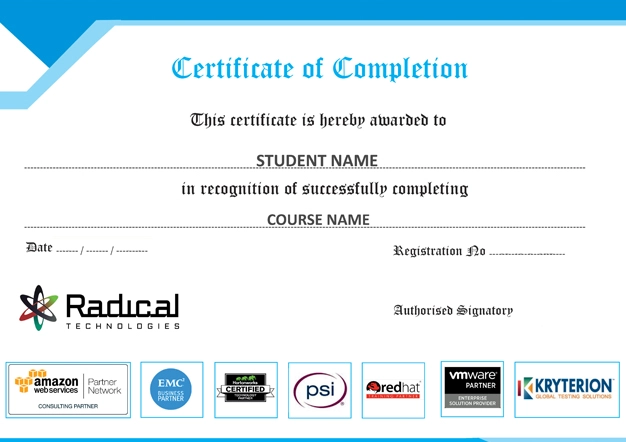


At Radical Technologies, we are committed to your success beyond the classroom. Our 100% Job Assistance program ensures that you are not only equipped with industry-relevant skills but also guided through the job placement process. With personalized resume building, interview preparation, and access to our extensive network of hiring partners, we help you take the next step confidently into your IT career. Join us and let your journey to a successful future begin with the right support.
At Radical Technologies, we ensure you’re ready to shine in any interview. Our comprehensive Interview Preparation program includes mock interviews, expert feedback, and tailored coaching sessions to build your confidence. Learn how to effectively communicate your skills, handle technical questions, and make a lasting impression on potential employers. With our guidance, you’ll walk into your interviews prepared and poised for success.
At Radical Technologies, we believe that a strong professional profile is key to standing out in the competitive IT industry. Our Profile Building services are designed to highlight your unique skills and experiences, crafting a resume and LinkedIn profile that resonate with employers. From tailored advice on showcasing your strengths to tips on optimizing your online presence, we provide the tools you need to make a lasting impression. Let us help you build a profile that opens doors to your dream career.

Infrastructure Provisioning
Implementing automated infrastructure provisioning and configuration management using Ansible. This may include setting up servers, networking devices, and other infrastructure components using playbooks and roles.

Applications Deployment
Automating the deployment and orchestration of applications across development, testing, and production environments. This could involve deploying web servers, databases. middleware, and other application components using Ansible

Continuous Integration
Integrating Ansible into CI/CD pipelines to automate software. build, test, and deployment processes. This may include automating the creation of build artifacts, running tests, and deploying applications to various environments.

The Redhat Linux Course at Radical Technologies in Bangalore exceeded my expectations. The comprehensive Linux RHEL 8 Training prepared me well for the Linux RHEL 8 Certification.
I enrolled in the Linux RHEL 8 Course in Bangalore at Radical Technologies and was thoroughly impressed by the detailed Linux RHEL 8 Classes. The instructors are top-notch!
Radical Technologies offers the best Linux Training in Bangalore. The Linux RHEL 8 Course is well-structured, and the hands-on experience is invaluable.
Completing the Redhat Linux Course in Bangalore at Radical Technologies was a game-changer for my career. The Linux RHEL 8 Training is practical and thorough.
Completing the Redhat Linux Course in Bangalore at Radical Technologies was a game-changer for my career. The Linux RHEL 8 Training is practical and thorough.
I highly recommend the Linux RHEL 8 Course at Radical Technologies in Bangalore. The trainers are experienced, and the Linux RHEL 8 Classes are very engaging.
Radical Technologies in Bangalore offers exceptional Linux RHEL 8 Training. The course content is up-to-date, and the Linux RHEL 8 Certification has boosted my resume.
The Linux RHEL 8 Training in Bangalore at Radical Technologies is top-quality. The instructors are knowledgeable, and the Linux RHEL 8 Institute in Bangalore provides great support.
I took the Redhat Linux Course at Radical Technologies in Bangalore and found the Linux RHEL 8 Classes to be very comprehensive. The certification process was smooth and well-guided.
Radical Technologies' Linux RHEL 8 Course in Bangalore is fantastic. The training sessions are interactive, and the Linux RHEL 8 Certification in Bangalore is recognized globally.
The Linux RHEL 8 Training in Bangalore at Radical Technologies was an excellent experience. The course material is detailed, and the Linux RHEL 8 Institute in Bangalore is very professional.
Radical Technologies provides the best Redhat Training in Bangalore. The Linux RHEL 8 Course is thorough, and the certification preparation is excellent.
I am grateful for the Linux RHEL 8 Classes in Bangalore at Radical Technologies. The instructors are supportive, and the Linux RHEL 8 Certification in Bangalore has opened new career opportunities for me.
The Redhat Linux Course in Bangalore at Radical Technologies is well-designed. The Linux RHEL 8 Training helped me understand complex concepts with ease
Radical Technologies in Bangalore is the best place for Linux RHEL 8 Training. The instructors are experts, and the Linux RHEL 8 Certification is well-respected.
I had a great learning experience with the Linux RHEL 8 Course at Radical Technologies in Bangalore. The Linux RHEL 8 Classes are detailed and practical.
Radical Technologies offers an excellent Linux RHEL 8 Certification Course Online. The flexibility and quality of the Red Hat Linux Online Training are commendable.
The Linux Developer Training in Bangalore at Radical Technologies prepared me well for the industry. The Linux RHEL 8 Course content is up-to-date and relevant.
Radical Technologies in Bangalore provides top-notch Linux RHEL 8 Training. The hands-on sessions and Linux RHEL 8 Certification in Bangalore are highly beneficial.
I highly recommend the Linux RHEL 8 Institute in Bangalore, Radical Technologies. The Linux RHEL 8 Course is comprehensive, and the certification is well-recognized.
The Linux Training in Bangalore at Radical Technologies is exceptional. The Redhat Linux Course content is detailed, and the trainers are very knowledgeable.
I completed the Linux RHEL 8 Course at Radical Technologies in Bangalore and found the Linux RHEL 8 Classes very informative. The certification process was smooth.
Radical Technologies' Red Hat Linux Certification Course Online is excellent. The course is well-structured, and the Red Hat Linux Online Training is very convenient.
The Linux RHEL 8 Training in Bangalore at Radical Technologies was a great investment. The course content is practical, and the Linux RHEL 8 Certification in Bangalore is highly valued.
Radical Technologies in Bangalore offers the best Linux RHEL 8 Course. The training is detailed, and the Linux RHEL 8 Certification in Bangalore has greatly enhanced my career prospects.







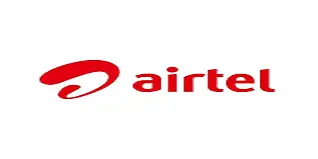
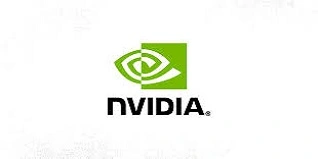
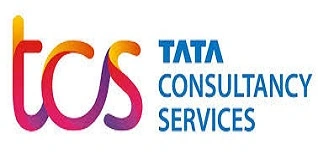

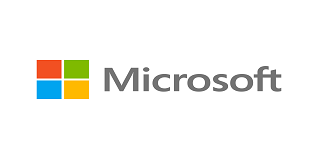
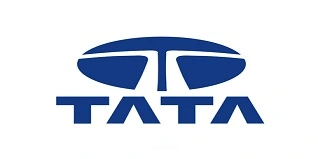

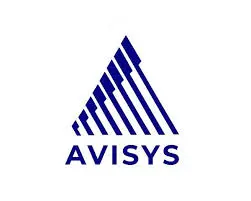

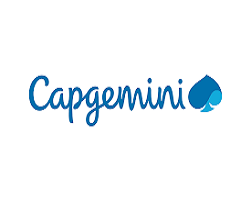


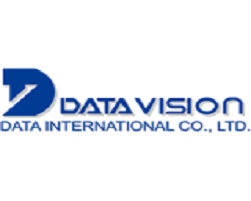
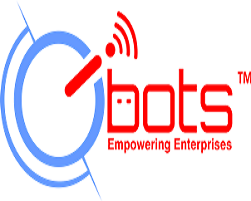
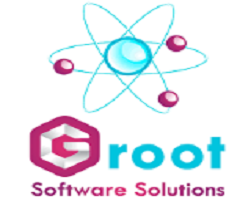
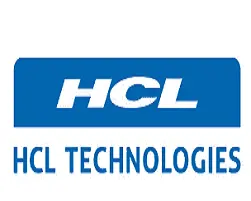
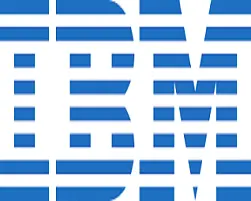

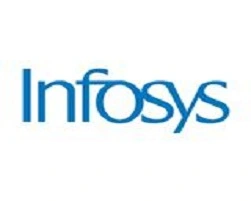
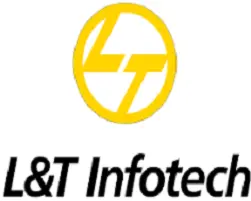
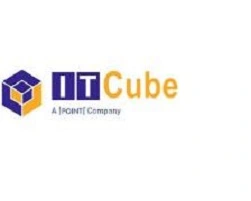
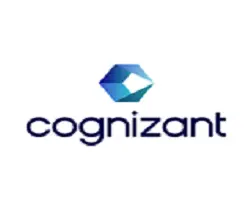
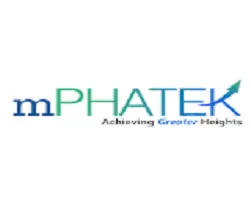
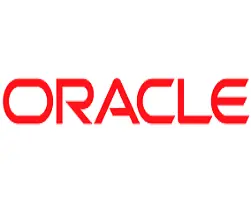

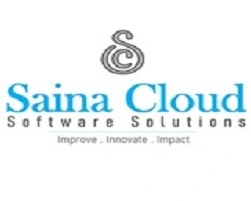




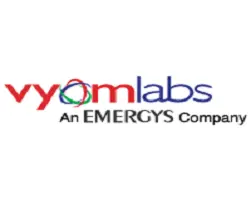
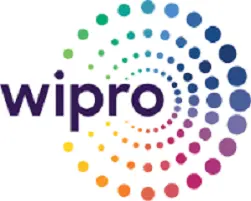
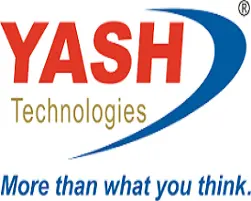
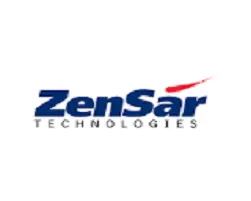
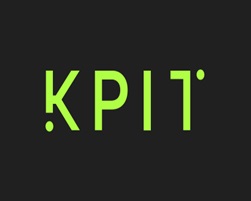
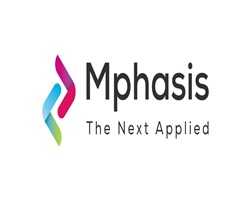
The Redhat Linux Course at Radical Technologies in Bangalore is a comprehensive program that covers all essential aspects of Linux RHEL 8, from basic to advanced levels, preparing students for the industry-recognized Linux RHEL 8 Certification.
The Linux RHEL 8 Course in Bangalore covers system administration, networking, security, shell scripting, and more, ensuring students gain practical and theoretical knowledge necessary for the Linux RHEL 8 Certification.
You can enroll in the Linux RHEL 8 Training in Bangalore by visiting the Radical Technologies website, contacting our admissions team, or visiting our institute in person.
Yes, the Linux RHEL 8 Certification in Bangalore from Radical Technologies is recognized globally, making it a valuable addition to your professional credentials.
Yes, the Linux RHEL 8 Classes in Bangalore at Radical Technologies are designed for both beginners and experienced professionals, ensuring everyone can benefit from the training.
The duration of the Linux RHEL 8 Course in Bangalore varies depending on the chosen program, typically ranging from a few weeks to a few months.
Yes, Radical Technologies offers Red Hat Linux Online Training, allowing students to learn from anywhere and at their own pace.
There are no strict prerequisites for the Linux RHEL 8 Training in Bangalore, but basic knowledge of computer systems and networking can be beneficial.
The cost of the Redhat Linux Course in Bangalore varies depending on the specific program and duration. Please contact Radical Technologies for detailed pricing information.
Yes, Radical Technologies provides placement assistance to students who complete the Linux RHEL 8 Certification in Bangalore, helping them secure jobs in the IT industry.
The Linux RHEL 8 Classes in Bangalore include a mix of lectures, hands-on labs, and real-world projects to ensure comprehensive learning.
Yes, Radical Technologies offers RHCSA Training in Bangalore as part of its comprehensive Linux RHEL 8 Course, preparing students for the RHCSA certification exam.
Students have access to extensive resources, including course materials, hands-on labs, practice exams, and support from experienced instructors during the Linux RHEL 8 Training in Bangalore.
Yes, Radical Technologies offers flexible scheduling options for the Redhat Linux Course in Bangalore, including weekday and weekend classes to accommodate different schedules.
The Linux Developer Training in Bangalore at Radical Technologies provides students with practical skills, real-world projects, and in-depth knowledge of Linux RHEL 8, making them well-prepared for careers in the IT industry.
Basavanagudi | HSR Layout | Sadashivanagar | Jayanagar | Koramangala | Whitefield | Banashankari | Marathahalli | BTM Layout | Electronic City | Rajajinagar | Domlur | Indiranagar | Malleshwaram | Yelahanka | Cooke Town | Nagarbhavi | Bannerghatta Road | Chandapura | Dasarahalli | Devanahalli | Anandnagar | Avenue Road | Byatarayanapura
I had an amazing experience with this service. The team was incredibly supportive and attentive to my needs. The quality of the work exceeded my expectations. I would highly recommend this to anyone looking for reliable and professional service."
I had an amazing experience with this service. The team was incredibly supportive and attentive to my needs. The quality of the work exceeded my expectations. I would highly recommend this to anyone looking for reliable and professional service."
I had an amazing experience with this service. The team was incredibly supportive and attentive to my needs. The quality of the work exceeded my expectations. I would highly recommend this to anyone looking for reliable and professional service."
I had an amazing experience with this service. The team was incredibly supportive and attentive to my needs. The quality of the work exceeded my expectations. I would highly recommend this to anyone looking for reliable and professional service."
I had an amazing experience with this service. The team was incredibly supportive and attentive to my needs. The quality of the work exceeded my expectations. I would highly recommend this to anyone looking for reliable and professional service."
Red Hat Linux Certification is a prestigious credential recognized globally for its emphasis on practical skills and knowledge in Linux system administration and related technologies. This certification validates an individual’s proficiency in managing and troubleshooting Red Hat Enterprise Linux (RHEL) environments, making it a valuable asset for IT professionals aiming to excel in the open-source ecosystem.
Red Hat Linux, particularly Red Hat Enterprise Linux (RHEL), is renowned for its stability, security, and performance in enterprise environments. Its versatility allows it to be used in various applications across different industries. Here are some of the key applications of Red Hat Linux:
1.Server Operating System
Web Servers: RHEL is commonly used to host web servers, including Apache and Nginx, due to its robust performance and security features.
Database Servers: It is widely used to run database management systems like MySQL, PostgreSQL, and Oracle, providing a reliable platform for data storage and management.
Application Servers: RHEL supports various application servers, including JBoss, Tomcat, and WildFly, making it ideal for deploying enterprise applications.
2. Cloud Computing
Private Clouds: RHEL is a popular choice for building private cloud environments using platforms like OpenStack and Red Hat Virtualization.
Public Clouds: It is available on major public cloud providers like AWS, Microsoft Azure, and Google Cloud, offering scalability and flexibility for cloud-based applications.
Hybrid Clouds: RHEL enables seamless integration between on-premises infrastructure and cloud environments, supporting hybrid cloud strategies.
3. Virtualization
KVM (Kernel-based Virtual Machine): RHEL includes KVM for virtualization, allowing multiple virtual machines to run on a single physical host.
Red Hat Virtualization (RHV): RHV is a comprehensive virtualization solution for managing virtual servers and desktops, based on RHEL.
4. Containerization
Docker: RHEL supports Docker for containerizing applications, providing a consistent runtime environment across different systems.
OpenShift: Red Hat OpenShift is a Kubernetes-based platform for developing, deploying, and managing containerized applications, offering advanced features for enterprise environments.
5. Development Environment
Software Development: RHEL provides a stable and secure platform for software development, supporting a wide range of programming languages and development tools.
DevOps: It integrates well with DevOps tools and practices, enabling continuous integration and continuous deployment (CI/CD) pipelines.
6. Networking
Network Services: RHEL is used to provide various network services such as DNS, DHCP, FTP, and more.
Firewall and Security: It includes robust firewall and security features, making it suitable for use as a network security appliance.
7. Big Data and Analytics
Hadoop and Spark: RHEL supports big data platforms like Hadoop and Spark, providing a reliable and scalable environment for big data processing and analytics.
Data Warehousing: It is used for data warehousing solutions, offering high performance and reliability for large-scale data storage and analysis.
8. High-Performance Computing (HPC)
Scientific Computing: RHEL is used in scientific computing environments for tasks that require significant computational power, such as simulations and data analysis.
Cluster Computing: It supports the creation of compute clusters for parallel processing and distributed computing.
9. Internet of Things (IoT)
Edge Computing: RHEL is used in edge computing scenarios, providing a reliable platform for processing data close to the source in IoT applications.
IoT Gateways: It serves as a secure and stable operating system for IoT gateways, managing data flow between IoT devices and the cloud.
10. Enterprise Applications
ERP and CRM Systems: RHEL is often used to host enterprise resource planning (ERP) and customer relationship management (CRM) systems, ensuring reliable and secure operation.
Content Management Systems: It supports various content management systems (CMS) such as Drupal, Joomla, and WordPress, providing a stable environment for managing digital content.
Red Hat Linux’s extensive capabilities and robust features make it a versatile platform suitable for a wide array of applications across different industries. Its reliability, security, and performance ensure that it continues to be a preferred choice for enterprises worldwide.
Radical Technologies, the premier institute in Bangalore, specializes in comprehensive Redhat Linux courses, including the esteemed Linux RHEL 8 Course. We offer a range of Linux RHEL 8 Training programs designed to equip students with the skills needed for the industry-recognized Linux RHEL 8 Certification.
Our institute is renowned for its in-depth Linux RHEL 8 Classes, ensuring that each student receives hands-on experience and thorough knowledge. Located in the heart of Bangalore, Radical Technologies is the ideal destination for those seeking a top-tier Linux RHEL 8 Institute.
The Redhat Linux Course in Bangalore at Radical Technologies covers all essential aspects, from foundational knowledge to advanced techniques, ensuring students are well-prepared for the Linux RHEL 8 Certification in Bangalore. Our experienced instructors lead engaging Linux RHEL 8 Classes in Bangalore, focusing on practical applications and real-world scenarios.
We also offer flexible learning options, including Red Hat Linux Online Training, allowing students to pursue their education from anywhere. For those aiming for RHCSA Training in Bangalore, our institute provides targeted courses to help you achieve your certification goals.
At Radical Technologies, our Linux Training in Bangalore is designed to meet the evolving demands of the IT industry. Whether you’re looking for a Linux Developer Training in Bangalore or a comprehensive Linux Course in Bangalore, our programs are tailored to provide the best possible education.
Join us at Radical Technologies and advance your career with our expertly crafted Linux RHEL 8 Training in Bangalore. Our commitment to excellence makes us the leading choice for Redhat Training in Bangalore, and our proven track record speaks volumes about the quality of our education and the success of our students.


(Our Team will call you to discuss the Fees)


(Our Team will call you to discuss the Fees)